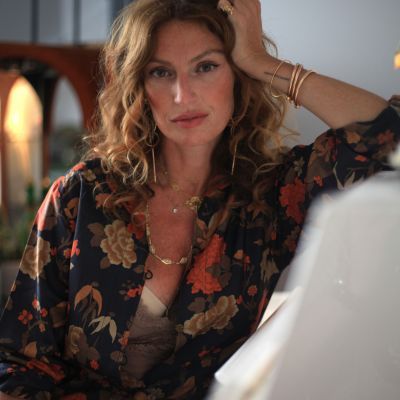After the death of her beloved husband Philippe, 78-year-old Rose initially succumbs to paralysing grief. When her daughter Sarah takes her to a party however, Rose discovers an unexpected joie de vivre. A Sephardic Jew who married into an Ashkenazi family, she indulges herself in the pleasures of oriental music and dance, outings in Philippe's old car, and even allows herself to have a lover. Her three children are suspicious of Rose's new lifestyle: Has their mother completely lost her wits? Or are they themselves instead just jealous, unable as they are to get their own lives in order? It is thus that "Rose" makes a case for female self-determination whilst also addressing, at times light-heartedly and at others more seriously, the problems that arise between grown-up children and their parents as well as the somewhat taboo issue of sex in old age.
Rose
A Jewish widow who, though getting on in years, wants to enjoy life again: is that acceptable or to be frowned upon? Aurélie Saada's feature film describes the late-blossoming of a woman who has otherwise always submitted to the will of others and finally resolves to listen to her inner voice in a work that sees France's grande dame Françoise Fabian excel in her role as the title character.
Credits
original title Rose
international title Rose
german title Rose
JFBB section Feature Film Competition
country/countries FR
year 2021
duration 103 min
producer Priscilla Bertin, Judith Nora
production company Silex Films

Aurélie Saada
BIO Aurélie Saada, born August 4, 1978, is a French singer-songwriter, director and actress. She forms the Brigitte group with Sylvie Hoarau. The duo won the Group or "Artist Revealing Stage award" at the 2012 Victoires de la Musique. In 2021 she wrote, composed and directed "Rose" with Françoise Fabian in the title role. The film was nominated for Best Film Grand Prix at the Saint-Jean-de-Luz International Film Festival and won the Variety Piazza Grande Award at the Locarno International Film Festival.




